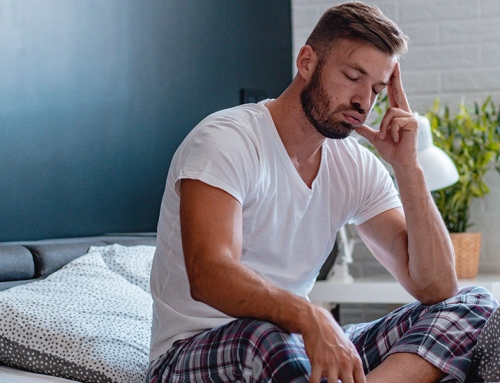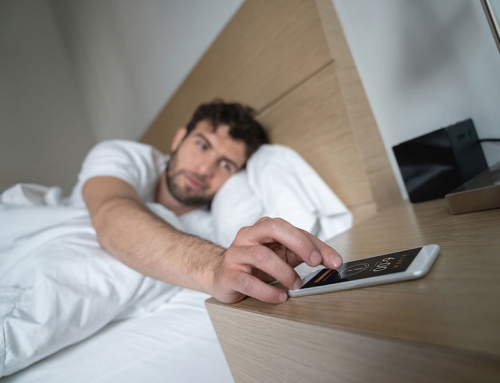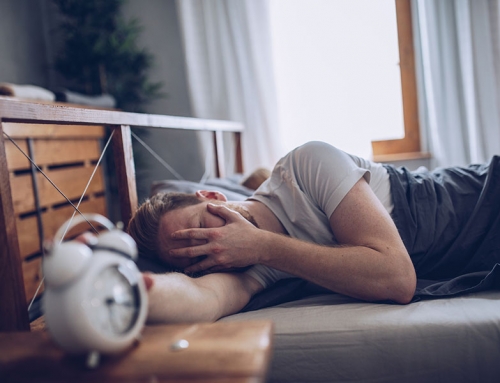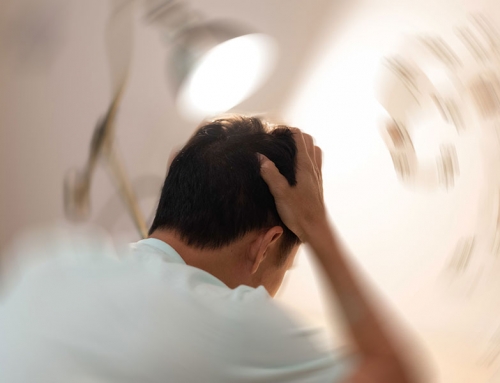Of all the aches and pains experienced when waking up in the morning, by far the most common is back pain. In fact, Web MD claims that lower back pain is the second most common reason for a visit to the doctor. But why is this? What does back pain after sleeping tell you about you and your body? And what can you do about it?
Why is morning back pain so common?
Our sedentary lifestyles. While many people have become more aware of the dangers of sitting in recent years, the fact is that we still spend too much time on our butts. Whether driving, working, or just watching TV, all that time spent sitting can cause our hips to tighten and the discs in our backs to compress—and going straight from the sofa to the bed only worsens the issue.
Exhaustion, alcohol, and medications. We’re busy… really busy! A Deloitte survey of 1,000 full-time US professionals found that 77 percent of respondents experienced burnout in their workplace, with over half citing more than one occurrence. As a result, many of us fall into bed exhausted, and may also turn to alcohol and medications to combat stress and anxiety. All of which can cause unnaturally deep and immobile sleep, leading to aches and pains in the morning.
Bad mattresses. It can be hard to separate mattress company marketing campaigns from the facts on back pain and bed quality. But as discussed below, there’s a clear association between a mattress that doesn’t effectively distribute your weight, and waking up sore. Pillows, too! Consult our guide to choosing the best mattress so you never have to get dragged down by a bad one.
Possible causes of backache and pain
5 tips for reducing morning back pain
If you judge your back pain to be exercise-related, try using cold packs, heat packs, and anti-inflammatory drugs such as naproxen.
- Experiment with placing a pillow underneath your knees, beneath your lower back, or between your legs (for side sleepers). For some, this can help to reduce pressure on joints.
For those suffering from bad quality mattresses, WebMD recommends adding plywood supports between the mattress and its base. If your bed frame is really bad, you could even experiment with placing your mattress directly onto the floor.
Take up yoga! Any kind of stretching aids back strength and recovery, with yoga offering a formal way to stretch that’s both safe and progressive—always giving you a new level to aspire to.
If a new mattress isn’t a possibility right now, consider investing in a luxury pillow. You may be surprised at how effective a single pillow can be at supporting your neck and upper back.





